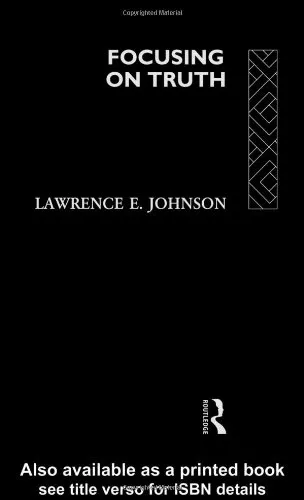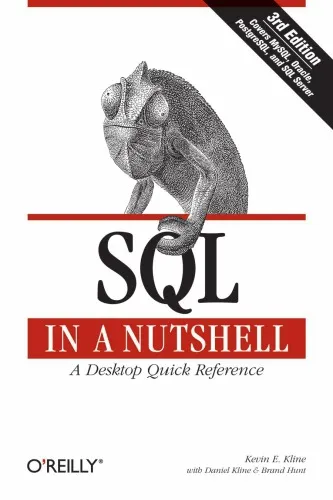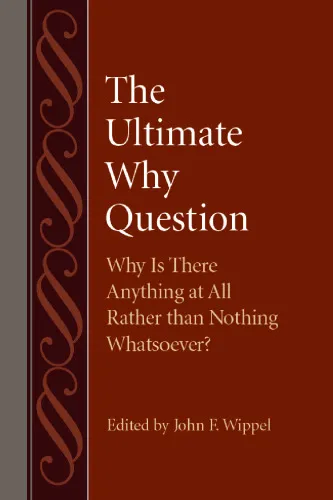House and Philosophy: Everybody Lies (The Blackwell Philosophy and Pop Culture Series)
4.5
Reviews from our users

You Can Ask your questions from this book's AI after Login
Each download or ask from book AI costs 2 points. To earn more free points, please visit the Points Guide Page and complete some valuable actions.Related Refrences:
Introduction to "House and Philosophy: Everybody Lies"
Welcome to an in-depth exploration of one of television's most beloved yet enigmatic characters, Dr. Gregory House, through the lens of philosophy. "House and Philosophy: Everybody Lies" delves into the moral dilemmas, philosophical nuances, and perplexing concepts that define not only the titular character but also the broader themes of the hit TV show House, M.D.. This book is part of The Blackwell Philosophy and Pop Culture Series, which connects the seemingly unrelated worlds of philosophy and pop culture, revealing profound insights beneath the surface of entertainment.
Whether you are a fan of the show, a philosophy enthusiast, or simply curious about the ethical and intellectual themes embedded in House, M.D., this book offers a unique opportunity to engage deeply with the ideas that shape Dr. House's medical practice, sarcastic wit, and conflicted humanity.
Detailed Summary of the Book
At its core, "House and Philosophy: Everybody Lies" centers on the fascinating world of Dr. House, a misanthropic but brilliant physician who possesses a razor-sharp intellect and a penchant for saying what most people only dare to think. The book intertwines the ethical medical dilemmas that arise in episodes of the show with centuries of philosophical inquiry. Classic themes such as truth, deception, morality, suffering, and existentialism are explored within the context of the show's narrative and House's strikingly flawed personality.
Through the application of thinkers such as Nietzsche, Kant, and Aristotle, the book dissects various aspects of House's actions and decisions. What makes Dr. House tick? Why does he believe “everybody lies,” and how does that belief inform his medical practice? These questions pave the way for deeper considerations of human nature, the role of rationality, and the relativity of morality. Each chapter ties different philosophical perspectives to specific episodes, creating a seamless dialogue between rigorous philosophical analysis and popular culture.
Key Takeaways
- The idea that "everybody lies" serves as a lens to examine the universal nature of dishonesty and self-deception.
- Philosophical schools of thought like utilitarianism and virtue ethics can be applied to Dr. House's decisions to highlight the tension between morality and pragmatism.
- House's skepticism and cynicism reflect broader existential questions about human suffering and the search for meaning.
- The interplay between House's intellect and emotional detachment raises questions about the cost of genius and individualism.
- By navigating complex medical and ethical cases, the book shows how philosophical ideas remain relevant in the modern world.
Famous Quotes from the Book
Here are some poignant and philosophical quotes from both the book and House himself:
"Everybody lies. It's a basic truth of the human condition."
"The value of a thing sometimes lies not in what one attains with it, but in what one pays for it — what it costs us."
"To understand House is to understand the complexity of being human — gnarly, flawed, but profoundly capable of good."
Why This Book Matters
"House and Philosophy: Everybody Lies" matters because it bridges the often-dismissed realm of pop culture with the academic and intellectual domain of philosophy.
Fans of House, M.D. will find a new way to look at their favorite TV show — not just as entertainment but as a storytelling medium that presents powerful and timeless ethical questions. Those who appreciate philosophy will enjoy the accessible integration of philosophical theories with modern media, making abstract ideas more relevant and engaging for a broader audience. In a world where critical thinking is more important than ever, this book challenges readers to interrogate themselves and their surroundings using the provocative character of Dr. House as a guide.
At the intersection of philosophy, ethics, and pop culture, "House and Philosophy: Everybody Lies" elevates the discourse around entertainment, proving that even the most unlikely characters — including a sharp-tongued and cane-wielding physician — can spark meaningful conversations about what it means to be human.
Free Direct Download
You Can Download this book after Login
Accessing books through legal platforms and public libraries not only supports the rights of authors and publishers but also contributes to the sustainability of reading culture. Before downloading, please take a moment to consider these options.
Find this book on other platforms:
WorldCat helps you find books in libraries worldwide.
See ratings, reviews, and discussions on Goodreads.
Find and buy rare or used books on AbeBooks.
1338
بازدید4.5
امتیاز0
نظر98%
رضایتReviews:
4.5
Based on 0 users review
Questions & Answers
Ask questions about this book or help others by answering
No questions yet. Be the first to ask!








